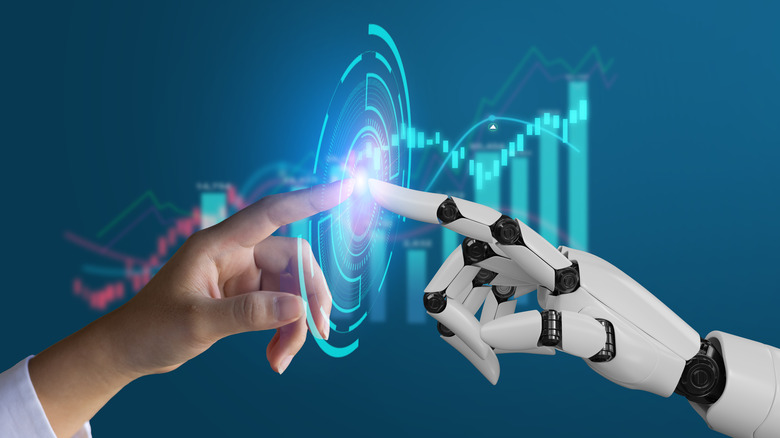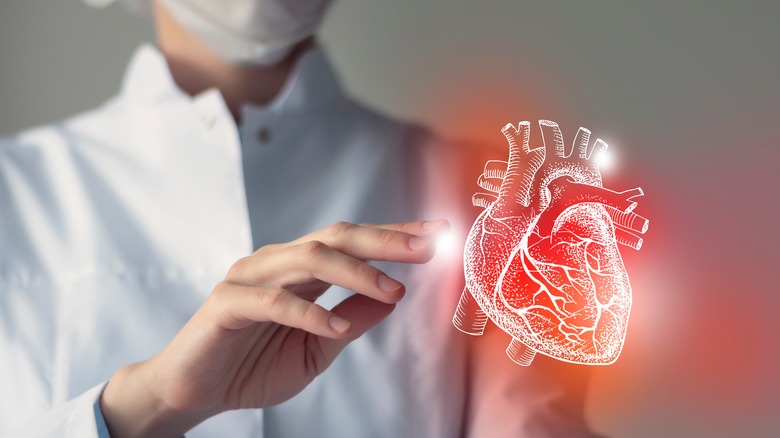The Rise Of AI In Healthcare: What It Could Mean For Hospitals And Doctor Offices
AI tools are finding an increasing number of use cases as commercially available solutions continue to accumulate and improve. ChatGPT is one example of an AI toolbox that has begun to revolutionize the writing output requirements of students, office staff, and everyone in between. As well, independent creators are integrating this function into plugins for widely used applications like Google Sheets.
That being said, productivity on the individual level isn't the only utility of AI tools. Hospitals and healthcare providers around the country are beginning to develop robust AI integration programs that promise to make the delivery of high quality care to patients more effective, efficient, and even preventative. From predicting heart attacks, to sequencing enormous volumes of lab samples from patients, AI could transform the landscape of medical care for the better.
One example of this shift can be seen in AI modeling used by Boston Children's Hospital. A research team at the facility built a model that successfully predicted missed appointments by patients 83% of the time. This might not immediately seem like an important use of AI, but if hospital staff are able to identify factors that increase missed appointments, they can theoretically reduce their incidence overall.
Heart attack predictions and heart health improvement
Predictive medicine is a key feature in the use of AI tools to provide improved results for patients. Cedars-Sinai, one of the largest nonprofit academic medical facilities in the United States, has implemented new AI functionality to provide preventative medical services to patients. The hospital's Artificial Intelligence in Medicine (AIM) division was established on March 1, 2022, and quickly began to yield positive results.
AIM has been involved in developing AI models designed to explore heart health risks. Using deep learning, the team has seen success in identifying real-world risks for heart attacks in patients with coronary artery disease, and has been effective in identifying two heart conditions that are notoriously easy to miss in diagnostic medicine.
Hypertrophic cardiomyopathy and cardiac amyloidosis are both difficult conditions for doctors to spot, and challenging to distinguish between, on top of it all. The AI model has been able to perform at a high rate of success in both of these functions.
In speaking with Becker's Hospital Review, Dr. Sumeet Chugh noted the AI division's "broad mandate," and predicted a future that won't have "a reduction in physicians, but an increase," that sees medical professionals deploying technical analysis tools to better serve their patients' often complicated and always personal needs.
AI-powered oncology tools are forthcoming
The Mayo Clinic in Minnesota is also getting into the world of AI-augmented diagnostic and treatment toolboxes when working with cancer research, diagnosis, and treatment. In April 2022, The Mayo Clinic and VUNO finalized a research agreement that will deliver AI-augmented diagnostic tools to the center. The parntership with VUNO, a South Korean AI company, aims to bring enhancements in predictive care as well as therapeutic decision-making enrichment throughout cancer treatment cycles.
These tools will make caring for patients struggling with cancer more effective, while making the facility better tailored to achieve success in a greater volume of afflicted patients. VUNO's AI tools may yield more precision in the diagnostic process that precedes any treatment routine. Technology and research products continue to play a central role in improving cancer treatment, and the integration of new AI tools could be the next step in this evolution.
Data and sample analysis will speed up diagnoses
Cleveland Clinic has also partnered with artificial intelligence organization PathAI in an effort to utilize the tech in evaluating 1.5 million sample slides over a five year period. Analysis of the data by AI will be aimed at pattern recognition within these samples. After digital scanning has been completed (which requires new scanning equipment, as well as a new team of specialist pathologists, at the facility), analyses conducted by PathAI's deep convolutional network tools will take place.
Pattern recognition is important in a wide range of applications in various industries, but it's particularly valuable when it comes to medicine. Identifying symptoms and minute changes in patient samples with greater clarity and pace can be the difference-maker when it comes to a correct diagnosis that could save a life.
This augmentation is a huge step in the direction of improved medical accuracy. With the help of AI models, it's very possible that medical diagnostics and treatment precision could be improved immensely.



